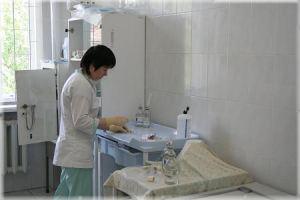 Today, the problem of alcoholism in our society is very acute. Every year, the number of families where one or both spouses suffer from alcoholism is growing. And people increasingly ask themselves: how to get rid of alcoholism?
Today, the problem of alcoholism in our society is very acute. Every year, the number of families where one or both spouses suffer from alcoholism is growing. And people increasingly ask themselves: how to get rid of alcoholism?
 Today, the problem of alcoholism in our society is very acute. Every year, the number of families where one or both spouses suffer from alcoholism is growing. And people increasingly ask themselves: how to get rid of alcoholism?
Today, the problem of alcoholism in our society is very acute. Every year, the number of families where one or both spouses suffer from alcoholism is growing. And people increasingly ask themselves: how to get rid of alcoholism?
Alcoholism is a type of drug addiction, this disease is characterized by an addiction to alcohol, despite the negative consequences.
People who drink constantly and often go on a binge can only be helped by alcoholism treatment in specialized drug treatment hospitals. This is the most rational approach, since no one will do it better than a professional who knows how to deal with alcoholism. You can be sure that doctors will quickly bring a person suffering from alcoholism back to normal, for this they have all the necessary means. However, there are also negative aspects - these are the conditions of staying in a hospital (a large number of patients in a ward, poor nutrition, etc.). In addition, there is a high probability that there will be a person in the ward who can set others up to violate the regime, to decompose the treatment process. These "leaders" can teach newcomers techniques for neutralizing this or that treatment for alcoholism, as well as share their experience of using other drugs. But do not despair, inpatient treatment for alcoholism is one of the most effective methods of treating alcoholism. To treat alcoholism in a hospital, you need to get a referral from the district drug treatment center. However, you need to understand one thing, if your relative himself does not want to get rid of alcoholism, then most likely they will not help him here. Before placing him in a hospital, it is necessary to "prepare" him at home, i.e. have a conversation with him and all family members, show what his alcoholism leads to, show all the disadvantages of drinking alcohol, and show all the advantages of a sober life. The conversation must be held with all family members, even if you did not manage to convince him the first time, you need to have several more conversations. But when he at least wants to try to get rid of alcoholism, then you need to hand him over to professionals for alcoholism treatment.
 Dovzhenko's method of coding is a treatment for alcoholism by suggestion. This method of treating alcoholism works well for those people who are easily suggestible and believe in this method. This method is harmless in the hands of a professional. However, there are people who claim that after such treatment of alcoholism their loved one became nervous and irritable. The former alcoholic becomes nervous not because of coding, but because he was not ready to give up drinking alcohol and went for treatment of alcoholism under someone's pressure and was psychologically unprepared to live sober.
Dovzhenko's method of coding is a treatment for alcoholism by suggestion. This method of treating alcoholism works well for those people who are easily suggestible and believe in this method. This method is harmless in the hands of a professional. However, there are people who claim that after such treatment of alcoholism their loved one became nervous and irritable. The former alcoholic becomes nervous not because of coding, but because he was not ready to give up drinking alcohol and went for treatment of alcoholism under someone's pressure and was psychologically unprepared to live sober.

 Relatives need to make a choice between free alcoholism treatment at a drug treatment center or alcoholism treatment at private clinics. You shouldn't immediately dismiss free institutions, professionals work there too, a lot will depend on how your relationship with your doctor develops. There are also medical psychologists who will also help you treat alcoholism.
Relatives need to make a choice between free alcoholism treatment at a drug treatment center or alcoholism treatment at private clinics. You shouldn't immediately dismiss free institutions, professionals work there too, a lot will depend on how your relationship with your doctor develops. There are also medical psychologists who will also help you treat alcoholism.
When choosing paid alcoholism treatment services, it is important not to fall for advertising tricks.
If you are promised that your relative will learn to drink in moderation, then immediately turn around and leave, because his alcoholism began with moderate drinking. Isn't that right? After all, he didn't immediately start drinking a bottle of vodka? They make money on alcoholics in private clinics.
Now imagine, the long-awaited moment has come and your loved one has stopped drinking. And now it will depend only on you whether he will drink when the effect of the drug or suggestion ends. Now you too must give up alcohol even for  holidays, you should understand well what your loved one feels, sitting in a noisy company, where everyone is drinking. Now you should live soberly together with him!
holidays, you should understand well what your loved one feels, sitting in a noisy company, where everyone is drinking. Now you should live soberly together with him!
Lemon juice has proven itself well in the treatment of alcoholism at home. Lemon juice can cause an aversion to alcohol even in inveterate alcoholics. The course of treatment of alcoholism in this home method is 18 days. To do this, on the 1st day you need to give the juice of one lemon to drink, then daily add 1-2 lemons up to 9 days, and after 9 days there is a decrease in lemons by 1-2 per day, i.e. finishing treatment of alcoholism in this home method, on the last day you should give 1 lemon. To consolidate result, it is recommended to conduct a session of anti-alcohol suggestion. This home method of treating alcoholism has its own contraindications: lemon juice is a fairly aggressive substance, so it should not be used by people with gastrointestinal diseases (gastritis, gastric ulcer, etc.).